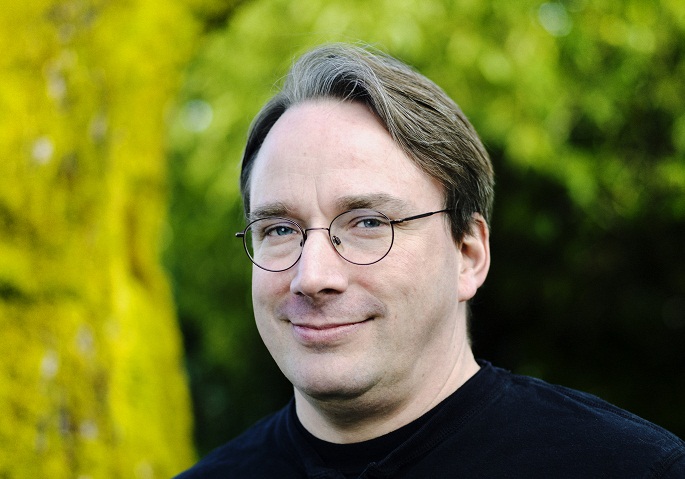

Linux creator Linus Torvalds
On Aug. 25, 1991, Linus Torvalds sent a mailing list message announcing that he was building a new operating system.
Today, nearly 25 years later to the day, Torvalds took the stage at LinuxCon here, recounting that original message and the years since then. For Linux’s creator, the success of the Linux operating system has a whole lot to do with the General Public License (GPL).
Torvalds was interviewed on stage at LinuxCon by his longtime friend Dirk Hohndel, who recently left Intel to become the chief open source officer at VMware.
In his original message, Torvalds noted that his operating system wouldn’t be portable and would only work with a very specific hard drive. Today, Linux is very portable, running on mobile devices and supercomputers and everything in between.
Quiz: What do you know about Linux?
Torvalds admitted that the first few releases of Linux were somewhat unpolished, with a core part of the Linux kernel 25 years ago being system drivers.
“Drivers are still most of what that kernel does,” Torvalds said. “The early Linux drivers were slightly less complete than what we have today, and that’s why the early Linux code was only 10,000 lines and now we’re at 17 million lines of code.”
In his original announcement for Linux 25 years ago, Torvalds wrote that his effort was not going to be big and professional. It took awhile for it to turn professional, and even today the process defies traditional hierarchies, he said. Linux kernel development today doesn’t even have a traditional organization chart. “From the outside, it all looks very organized with lots of code and new releases every 10 weeks,” he said.
For insiders, those who have been around Linux kernel development for years, Torvalds said developers just know whom to contact in terms of specific maintainers for code within Linux. He emphasized that there aren’t clear maintainer roles for Linux code in an organization chart fashion—and that’s a good thing, he claims, as it eliminates many of the traditional politics associated with organizations.
“It’s not a hierarchy; it’s more of a network of people,” Torvalds said.
In terms of Linux highlights over the last 25 years, for the most part, Torvalds said that everything has been really good. His earliest highlight was actually just realizing that Linux works.
More recently, though, Torvalds’ main highlight is the Linux development process. He noted that he doesn’t write much code anymore; rather, he helps manage the process of how Linux is built.
Originally published on eWeek
Page: 1 2
American space agency prepares for testing of Boeing's Starliner, to ensure it has two space…
As UK and Europe develop closer military ties, European Commission says it will invest €1.3…
Zuckerberg seeks to revive Facebook's original spirit, as Meta launches Facebook Friends tab, so users…
Notable development for Meta, after appeal against 2021 WhatsApp privacy fine is backed by advisor…
First sign of shake-up under new CEO Lip-Bu Tan? Three Intel board members confirm they…
Trump's nominee for SEC Chairman, Paul Atkins, has pledged a “rational, coherent, and principled approach”…